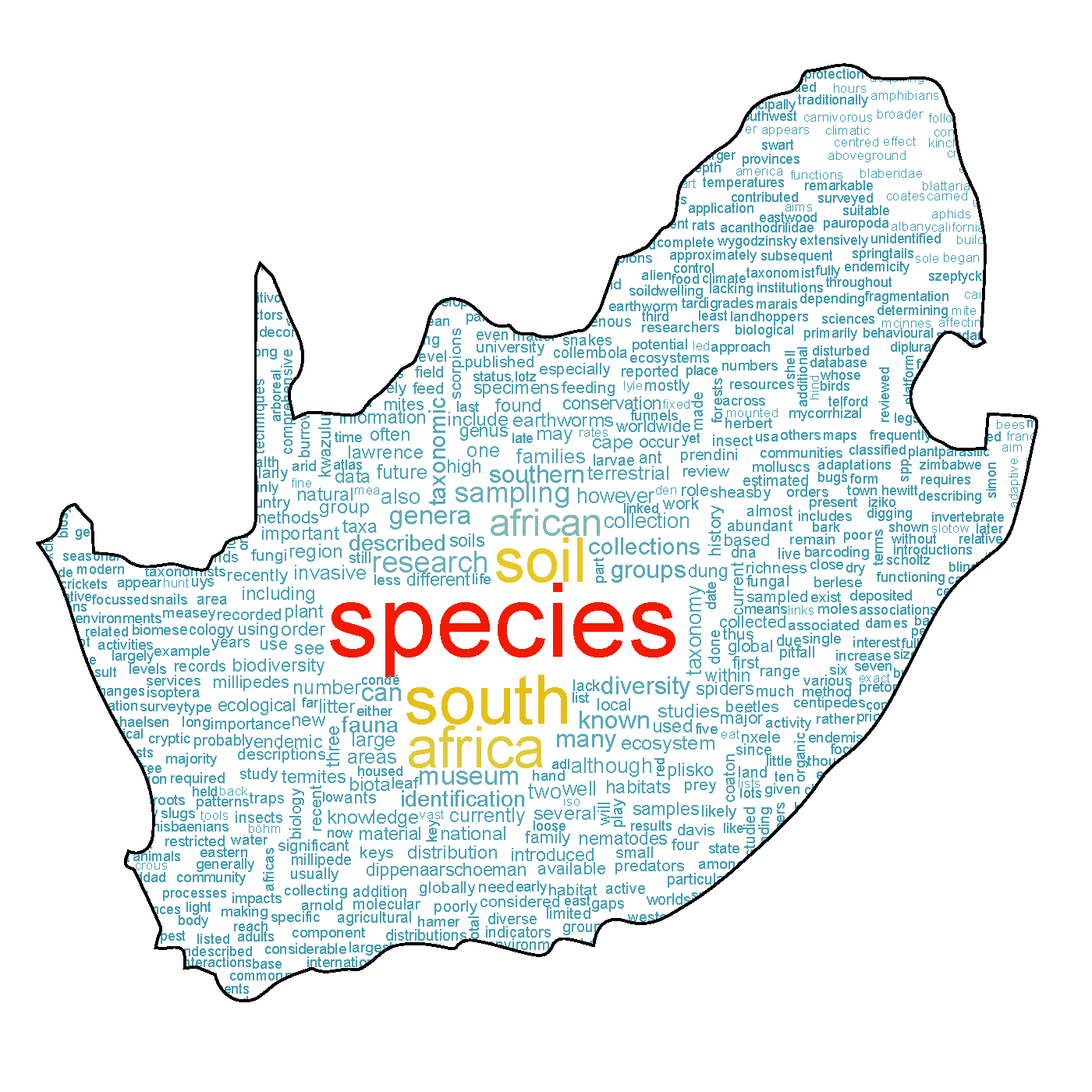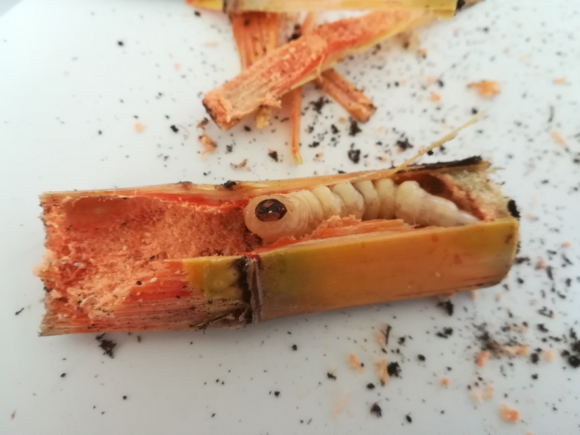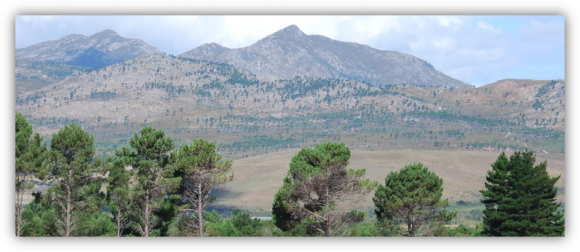 Soils are integral to agricultural productivity, biodiversity and the maintenance of ecosystem services. However, soil ecosystem research depends on foundational biological knowledge that is often missing. In a recent review published in Pedobiologia, C·I·B Research Associate Charlene Janion-Scheepers and C·I·B students and researchers (Sarah Davies, Siviwe Lamani, John Measey and John Wilson) brought together an impressive array of co-authors to review current knowledge on the soil biota of South Africa. The paper outlines the literature and sampling methods used to assess soil biota, the available taxonomic expertise and depository of main collections within South Africa, the availability of identification guides and online resources, and the status and distribution of described species.
Soils are integral to agricultural productivity, biodiversity and the maintenance of ecosystem services. However, soil ecosystem research depends on foundational biological knowledge that is often missing. In a recent review published in Pedobiologia, C·I·B Research Associate Charlene Janion-Scheepers and C·I·B students and researchers (Sarah Davies, Siviwe Lamani, John Measey and John Wilson) brought together an impressive array of co-authors to review current knowledge on the soil biota of South Africa. The paper outlines the literature and sampling methods used to assess soil biota, the available taxonomic expertise and depository of main collections within South Africa, the availability of identification guides and online resources, and the status and distribution of described species.
While sampling has been relatively comprehensive in some areas for a few groups, the Nama-Karoo, Northern Cape and Eastern Cape Provinces are all poorly sampled. Natural soils in biodiversity hotspots, such as the Fynbos Biome, are also understudied. The authors discuss some possible steps to mitigate threats to soil biota and suggest that a closer integration of soil related disciplines are needed. The formation of the Soil Ecosystem Research Group (SERG) is the first of many steps towards the goal of an integrative approach to soil ecosystem research in South Africa (see http://sergsa.org/).
“This paper represents an amazing compendium of knowledge on South Africa’s soil biota,” Charlene Janion-Scheepers said. “While we’ve learned that we already know an amazing amount about the animals and other organisms that live in our soils, we realise that what we don’t know is even greater.”
For more information contact: charlene.janionscheepers@monash.edu



